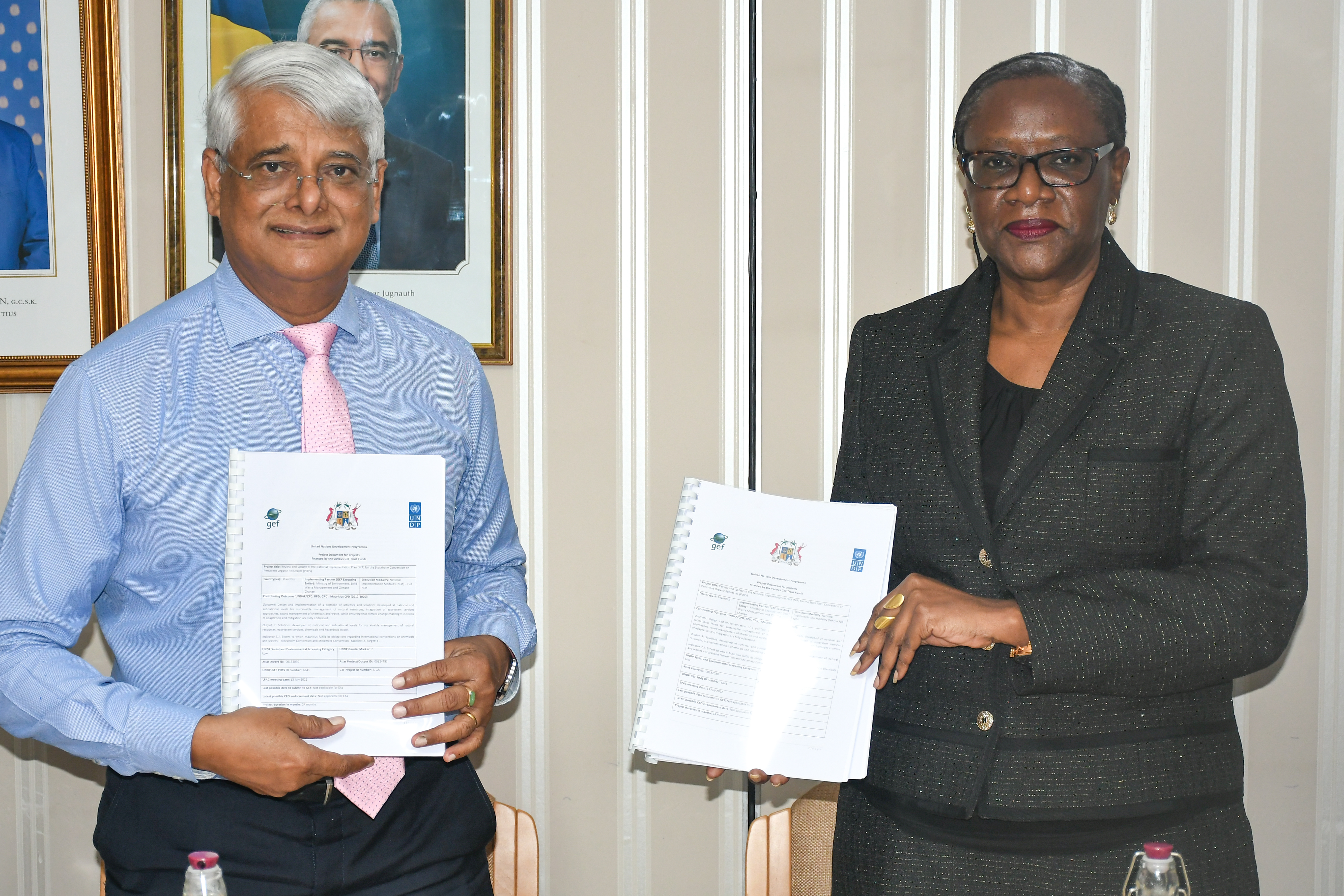Through a renewed partnership between the UNDP and Ministry of Environment, Solid Waste Management, and Climate Change, Mauritius is now equipped to fulfill its specific obligations to the the Stockholm and Minamata Conventions
Enhancing Mauritius' management of Persistent Organic Pollutants (POPs)
May 31, 2023

Mr. Ravi Shankar Sonea, Permanent Secretary of the Ministry of Environment, Solid Waste Management and Climate Change and Ms. Amanda Serumaga, UNDP Mauritius and Seychelles Resident Representative have validated this new partnership on 31 May 2023
The United Nations Development Programme (UNDP) has partnered with the Ministry of Environment, Solid Waste Management, and Climate Change to review and update the National Implementation Plan for the Stockholm Convention on Persistent Organic Pollutants (POPs) through a financial support from the Global Environment Facility (GEF). This new partnership was established on May 31, 2023, in Port-Louis.
Persistent Organic Pollutants (POPs) are chemical wastes that possess characteristics of toxicity, persistence, and the ability to accumulate. They can travel long distances through air or water and include pesticides, industrial chemicals, and by-products that pose threats to both human health and the environment. The Stockholm Convention on POPs, initiated in 2001 and ratified by 181 Parties in July 2004, aims at limiting the global impact of these pollutants.
Mauritius, as a signatory to the Stockholm and Minamata Conventions, has made significant progress in identifying and eliminating POPs. The country has previously developed a National Implementation Plan with the support from the UNDP, which provided a detailed action plan for managing and controlling identified POPs within the country. The National Implementation Plan was submitted to the Conference of Parties (COP) on 11 October 2006. However, in recent years, the Convention's annexes have been amended, leading to the identification of 18 new chemicals globally that possess POP-like characteristics. As a result, countries are required to review and update their National Implementation Plans and submit them to the Conference of the Parties (COP) in accordance with Article 7 of the Convention.
Through the renewed partnership with the UNDP and a funding allocation of USD 250,000 from the Global Environment Facility, the Republic of Mauritius is now equipped to fulfill its specific obligations to the relevant Conventions. This includes providing baseline data on POPs and developing strategy and action plans for their management which will serve to safeguard human health and the environment. The Ministry of Environment, Solid Waste Management, and Climate Change will serve as the implementing partner for this two-year project, which aims to establish inventories of products and articles containing the newly listed POPs and identify industrial processes where these POPs are still used or unintentionally produced.
Persistent Organic Pollutants (POPs) are chemical wastes that possess characteristics of toxicity, persistence, and the ability to accumulate.

 Locations
Locations